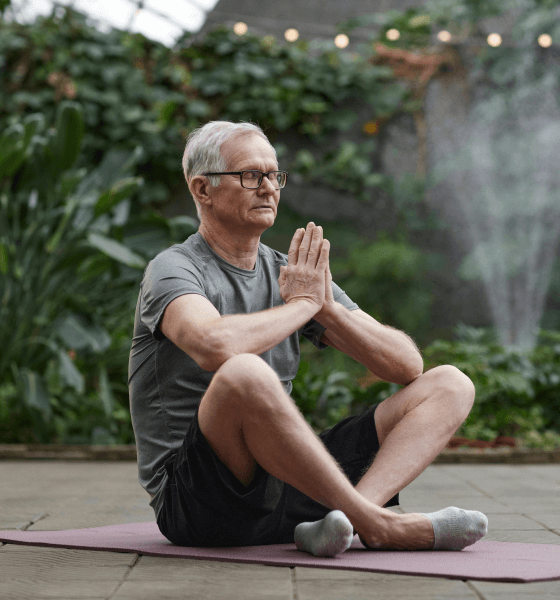

A Quebec father says he had to take his son to the United States for care after alleging doctors in Montreal wrote off his son’s chances at survival.

In October 2024, two-and-a-half-year-old Arthur Tetrault was found in the pool of a home his family was renting in Ile-Bizard, Que., a Montreal suburb.
Nicolas Tetrault said his son was rushed to the Lakeshore General Hospital Emergency department, and eventually, was transferred to the Montreal Children’s Hospital.
It was there where his father said he began to grow unsatisfied with how his son was being treated.
“They decided unilaterally that Arthur had no chance of survival, couldn’t breathe on his own (and) would be basically in the vegetative state for the next years of his life,” Tetrault said.
Not wanting to give up on his son, Tetrault said he started doing his own research on possible treatments for drowning victims.
He found the work of Dr. Paul Harch, a specialist on hyperbaric oxygen treatment in Louisiana who claims he’s had several positive results in young victims of brain injuries, including that 85 per cent of severely drowned children would see some level of improvement with hyperbaric oxygen treatment.
Tetrault said he asked doctors in Montreal to give Arthur hyperbaric oxygen treatment and other alternative treatments based on increasing oxygen levels.
According to him, they said no. Hyperbaric treatment is not approved by Health Canada to treat drowning victims.
“They said, ‘It’s witchcraft, all the doctors in the U.S. are imbeciles,'” Tetrault claims.
Dr. Pierre Marois, a child rehabilitation specialist affiliated with Sainte-Justine Children’s Hospital, said he and Harch have spoken at conferences about hyperbaric oxygen treatment.
Marois visited Arthur at the Montreal Children’s Hospital.
“I was surprised that they were thinking about removing any life support at that time,” Marois said.
Harch said doctors writing off children dealing with injuries like Arthur’s is “pretty typical,” and said when a parent proposes a therapy like hyperbaric oxygen treatment to a doctor, the situation can get “very confrontational.”
“This therapy is a very curious and unusual one that is not taught in medical schools,” he said.
“If a doctor cannot explain a therapy and have an understanding, they don’t refer people to it.”
Tetrault said he pulled every string he could and got Arthur to Ochsner Medical Center in New Orleans, where he’s already starting to receive care that he says is “a million times better.”
To him, the case underscores differences between the Canadian and American systems.
“The parents are treated as a client, you know, whereas in the hospitals in Montreal, we’re seen as a source of expense,” he said.
Medical malpractice lawyer Patrick Martin-Menard said Quebec’s public system does lack a customer service culture.
He said that though he doesn’t want to generalize, he’s seen situations where doctors, nurses or other decision-makers can be disrespectful, condescending or even abusive with patients.
“This type of attitude is very present here in the Quebec health-care system,” he said.
Martin-Menard wonders, however, if a system that comes with significant financial barriers is truly better.
“You can find a number of flaws in our system. You can also find a number of flaws in the U.S. system, the first of which being the amount of money that is required for someone to have access to this type of service,” he said.
“The quality of care in the U.S., is it that much better than in Quebec? I think it’s definitely up for discussion, but it’s not a clear black-and-white thing.”
The Montreal Children’s Hospital (MCH) said in a statement that its decisions are based on best practices.
“In general, there is little hope for survival of a child whose heart stops outside the hospital and requires prolonged cardiopulmonary resuscitation, arriving at the hospital without a heartbeat. This can happen in cases such as drowning. The usual outcome is either death or survival in a permanent vegetative state,” MCH communications director Christine Bouthillier said in an email.
She said organ donation is never discussed with families unless death is imminent, and never factors into decisions or discussions about neuroprognosis.
“Hyperbaric oxygen is not indicated for the chronic treatment of oxygen deprivation brain injury after resuscitated cardiac arrest and is not offered in Quebec,” she said.
Cardiologist Dr. Christopher Labos, who works with McGill University’s Office for Science and Society, recognizes that any parent will spare no expense to save a child. He said hyperbaric oxygen treatment has several Health Canada-authorized uses, but that treating drowning victims is not one.
“If your treating physician tells you that it’s not going to work because the evidence doesn’t support its use, there’s probably a reason why they’re telling you that,” he said.
“I don’t know that there’s any evidence to suggest that you could use it for a post-drowning case. That seems a little bit outside of what the evidence would suggest.”
Tetrault said Arthur should begin hyperbaric oxygen treatment this week. He said medical fees are going to end up costing him “more than six figures,” but that he’s finally been able to sleep.
“I really feel that there’s hope,” said Tetrault.
His social media posts documenting Arthur’s path have gone viral. Whether or not his son is ever able to walk or talk again remains unknown.
Tetrault said he plans to dedicate part of his life to helping drowning victims gain access to treatments.


